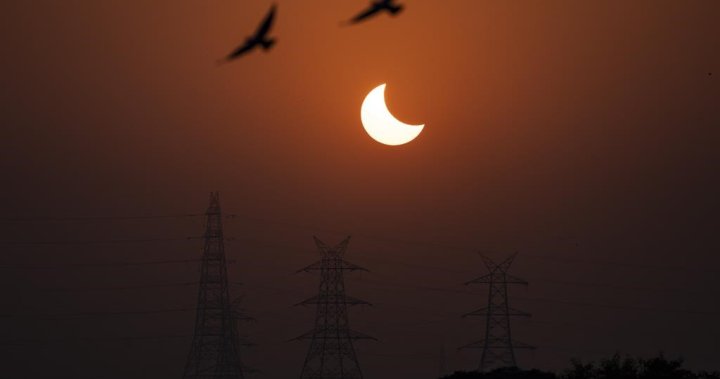On the day of the solar eclipse, Chelsea Paquette from the Granby Zoo will be observing a pair of Asian Himalayan Black Bears as part of a study on how animals react to an eclipse. The zoo has selected 12 species and a total of 50 animals to participate in the study, including Red Pandas, snow leopards, zebras, and ostriches. The study was proposed by local astronomer Pierre Chastenay, who will be focusing on the community of Japanese Macaque monkeys at the zoo due to their social nature. This will be Chastenay’s fourth eclipse experience, and he believes that the phenomenon will influence the behavior of the animals as temperatures drop and the wind picks up.
Chastenay and the team at the Granby Zoo have already spent time observing the animals’ normal behavior over two days, both before and after the eclipse, to establish a baseline for comparison. The researchers use an app to document the animals’ actions every minute during observation periods. The team at the Fort Worth Zoo in Texas is also conducting a similar study in collaboration with the Granby Zoo. Dr. Adam Hartstone-Rose, a professor at North Carolina State University, led a similar study during the 2017 eclipse, observing 17 animals and finding that about three-quarters showed notable reactions, such as behaving as if it were nighttime or displaying signs of anxiety.
During the 2017 eclipse study, Hartstone-Rose’s team observed interesting reactions from various animals, including a giraffe that started galloping, which is unusual behavior for that species. The Komodo Dragon at the zoo also exhibited unexpected behavior by running around and climbing the walls of its enclosure during the eclipse, when it had been stationary in the days leading up to it. The rarity of eclipses makes studying animal behavior during these events challenging, with more scientific studies about mythical creatures like Sasquatch than about animal responses to eclipses.
The lack of scientific research on animal behavior during eclipses motivated Chastenay to propose the study at the Granby Zoo and collaborate with other researchers to gather data on how different species react to these rare celestial events. The team hopes that the results of the study will help fill a significant gap in knowledge about animal behavior during eclipses. Despite the excitement surrounding the solar eclipse, some researchers, like Hartstone-Rose, find studying animal behavior during this time even more intriguing than observing the eclipse itself. The team’s observations during the eclipse will contribute valuable data to advancing our understanding of how animals respond to this natural phenomenon.


